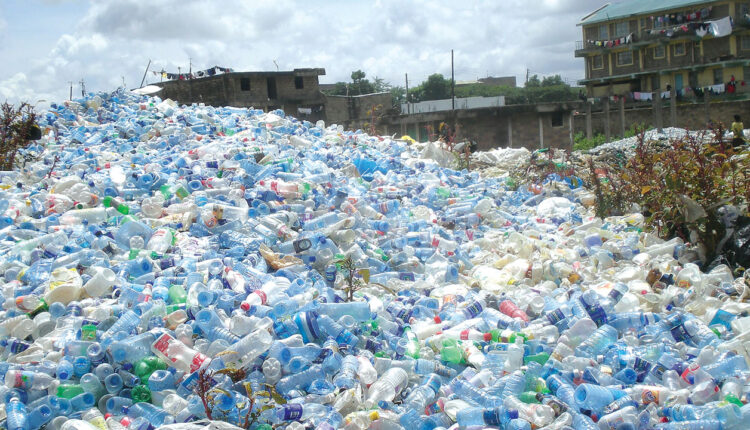NESREA, FRIN collaborate to reduce plastic pollution
Efforts to lessen plastic pollution in Nigeria have been stepped up by the National Environmental Standards and Regulations Enforcement Agency and the Nigerian Forestry Research Institute. This was announced at a symposium held by FRIN, NESREA, and the Oyo State chapter of the Forestry Association of Nigeria (FAN) on Monday in Ibadan to mark World Environment Day in 2023.
Every year on June 5th, there is a celebration of World Environment Day to spread awareness and support programmes aimed at protecting and preserving the environment. 2023’s World Environment Day had the slogan “Beat Plastic Pollution” as its theme.
In his opening remarks, Dr. Zacharia Buba-Yaduma, Director-General of FRIN, stated that plastic pollution had grown to be a serious environmental issue that required immediate attention and action.
According to Buba-Yaduma, plastic pollution is now a major problem that affects not only the environment but also the health of people and the global economy.
In order to protect the planet and its inhabitants, he urged businesses, governments, and individuals to come up with collaborative, sustainable solutions.
“Our oceans receive about eight million metric tonnes of plastic waste each year, harming the ecosystem and marine life. Due to the presence of microplastics in our food, water, and even the air we breathe, this pollution also has an impact on human health.
“Dependence on single-use plastic should be reduced, which is one of the best ways to reduce plastic pollution. The use of single-use plastics like straws, bags, and utensils can be prohibited or restricted by the government.
Businesses and individuals can also make a difference by implementing sustainable alternatives, such as reusable containers and packaging or biodegradable plastics.
In his remarks, researcher Dr. Peter Ogar urged the government to support a circular economy that would be strengthened by the necessary legislation.
Ogar added that such legislation should raise money for studies into the viability of utilising recycled plastics in the construction of valuable items like roads and bridges.
Additionally, Dr. Kehinde Aina pointed out that Nigeria could only continue to play the leadership role it is supposed to in Africa if the nation builds enough recycling facilities.
Aina continued by saying that deliberate efforts must be made to reduce the production of plastic waste and, to the greatest extent possible, reduce the amount that ends up in the ocean.
In her submission, Mrs. Jumoke Olowookere, the founder of the Waste Museum in Ibadan, claimed that plastic waste significantly contributes to climate change, which has led to food shortages, increased health risks, a loss of plant and animal species, and severe storms among other things.
Olowookere urged the adoption of plastic reuse, recycling, upcycling, reduction, repair, and refusal of use whenever possible in order to ensure a healthy environment.

